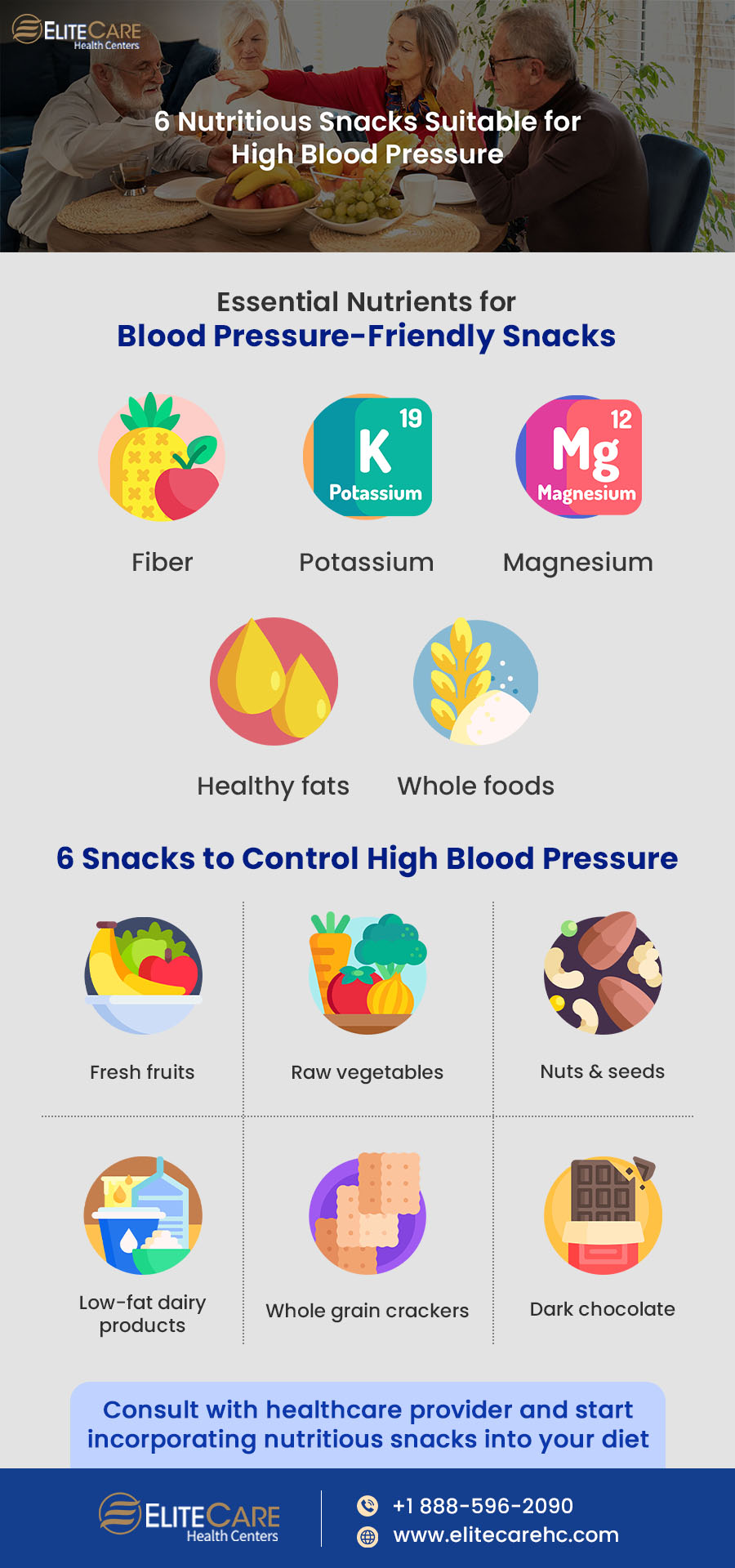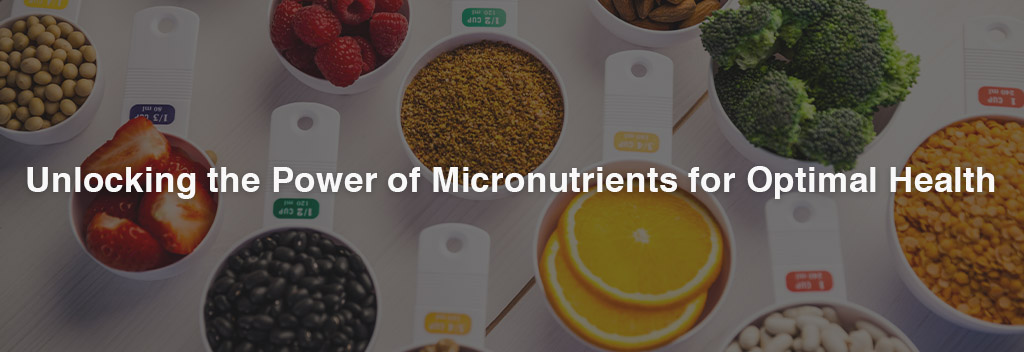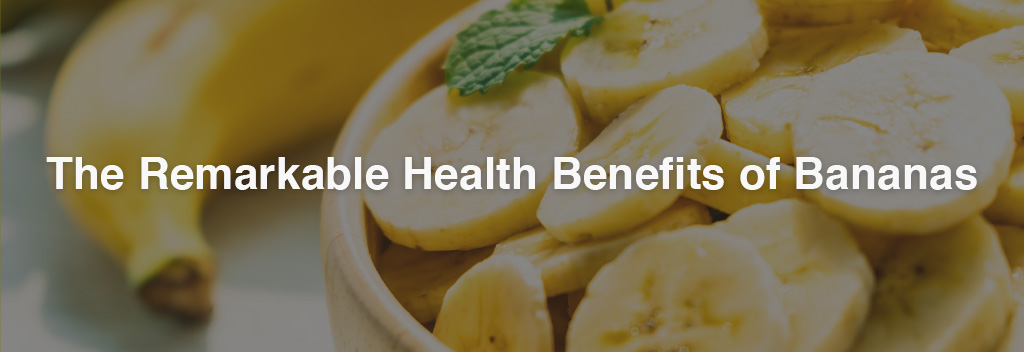
High blood pressure, also known as hypertension, is a common health condition affecting millions worldwide. Blood pressure is the force of blood pushing to get through the arteries. If pressure levels are consistently too high and not managed, it can lead to serious health complications, such as heart disease, stroke, and kidney failure. The only way to evaluate blood pressure levels is by measuring it.
Blood pressure is measured in millimeters of mercury (mm Hg) using two numbers: systolic pressure (the top number) and diastolic pressure (the bottom number). A normal blood pressure reading is around 120/80 mm Hg.
What Causes High Blood Pressure?
Several factors can contribute to high blood pressure in seniors. Some of the most common include:
- Age-related changes: With age, the blood vessels become stiffer and less flexible, which can increase blood pressure.
- Genetics: High blood pressure tends to run in families; if parents or siblings have high blood pressure, the person is more susceptible to developing the condition.
- Lifestyle factors: Unhealthy choices, such as a diet high in sodium, lack of physical activity, and smoking, can increase blood pressure.
- Obesity: Being overweight or obese puts extra strain on the heart and blood vessels. Which often increases blood pressure and raises the risk of heart disease.
- Medical conditions: Certain conditions, such as kidney disease, sleep apnea, and thyroid problems, can lead to high blood pressure.
Older adults must monitor their blood pressure regularly and work with their primary service provider to manage hypertension. Seniors who have diabetes should manage their condition effectively, as high blood sugar can have an impact on blood pressure. However, it is still important for seniors with diabetes to have regular blood sugar tests to monitor and manage diabetes effectively. Uncontrolled diabetes can increase the risk of developing hypertension and other health complications. Also, seniors should visit their neighborhood medical clinic to manage any underlying health conditions and become familiar with the senior care services that are available to them.
High blood pressure can be managed through diet. Choosing healthy snacks can be a great way to support a healthy diet and reduce the intake of processed and unhealthy foods.
Importance of Healthy Snacks
Snacking plays a crucial role in managing blood pressure for seniors. With age, the appetite and food intake decreases, leading to inadequate nutrient intake/ingestion and decreased energy levels. To maintain stable blood sugar levels, the body requires frequent meals and snacks to prevent spikes and dips in blood pressure. When an individual skips a meal or goes for long periods without eating, the blood sugar level can drop, leading to fatigue and weakness.
By snacking in between meals, seniors can also prevent overeating during mealtimes. Choosing healthy snack options that are high in fiber, potassium, and magnesium while low in sodium and unhealthy fats can help seniors maintain healthy blood pressure levels.
For seniors who are managing chronic health conditions, regular blood draws and monitoring are important. This may involve regular visits to a medical clinic for check-ups, and blood draws to monitor blood sugar and blood pressure levels. By working with their primary care physicians and incorporating healthy snacking habits into their daily routine, seniors can help manage their blood pressure and reduce the risk of developing additional hypertension-related health complications.
Key Nutrients and Ingredients to Look for in a Blood Pressure Friendly Snack
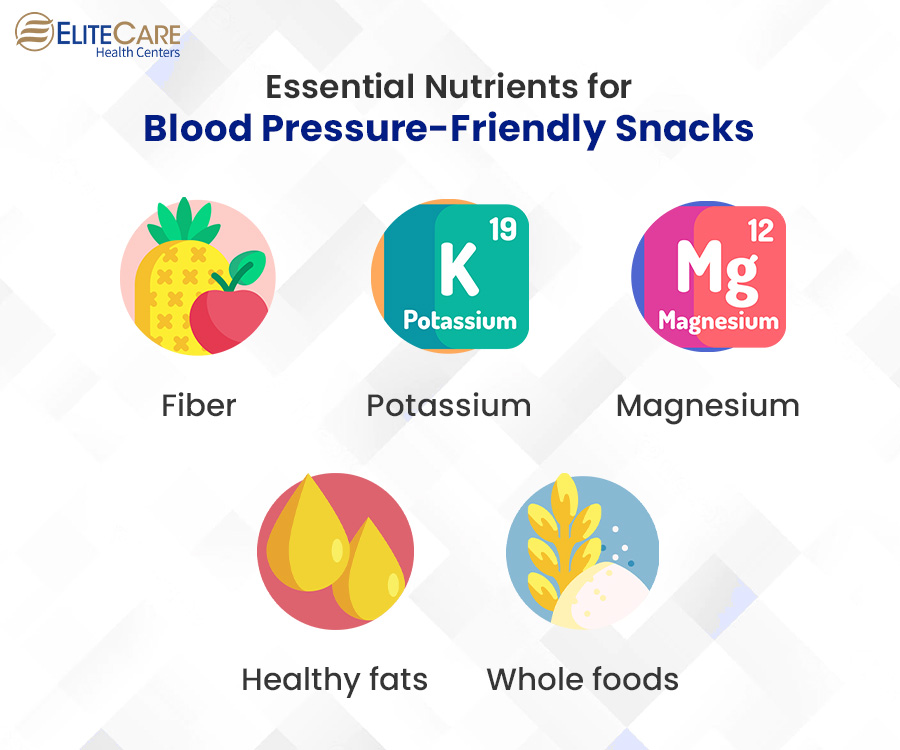
When selecting snacks for managing blood pressure in seniors, it is important to look for options that are both healthy and appealing to their taste buds. Here are some key nutrients and ingredients to look for while scanning packed food labels:
Low sodium content
Seniors should aim for snacks that are low in sodium as high sodium intake can contribute to high blood pressure. Look for snacks with less than 140mg of sodium per serving.
Fiber
One of the most important nutrients in managing blood pressure is fiber. It helps to regulate digestion and keep seniors feeling full between meals. High-fiber snacks are fruits, vegetables, nuts, seeds, and whole grains.
Potassium
It is a mineral that helps lower blood pressure by counteracting the effects of sodium. Seniors should consume at least 2,000-3,000 milligrams of potassium daily. Good sources of potassium include bananas, spinach, avocados, almonds, and plain yogurt.
Magnesium
It helps to relax blood vessels and improve blood flow. Good sources of magnesium include dark chocolate, almonds, spinach, and pumpkin seeds.
Healthy fats
Trans and saturated fats can contribute to high blood pressure and other health problems. Seniors should look for snacks that contain healthy fats, such as those found in nuts, seeds, and avocados. As these fats can help lower cholesterol levels and reduce the risk of heart disease.
Whole Foods
Seniors should choose snacks from whole foods rather than processed foods. Whole foods such as fruits, vegetables, nuts, and whole grains are typically higher in nutrients and provide a variety of vitamins, minerals, and antioxidants.
Older adults with certain health conditions, such as diabetes, kidney disease, and heart disease, may have additional dietary restrictions. They should consult with their healthcare provider or the staff at their healthcare center to determine the best snacks for their specific needs. Regular wellness blood tests can help seniors monitor their blood pressure and other important health markers. This can help them make informed decisions about their diet and snack choices.
Best Snacks Suited for those with High Blood Pressure
Here are some additional healthy snack options that meet the criteria for managing high blood pressure. Some of the best snacks for high blood pressure in seniors are:
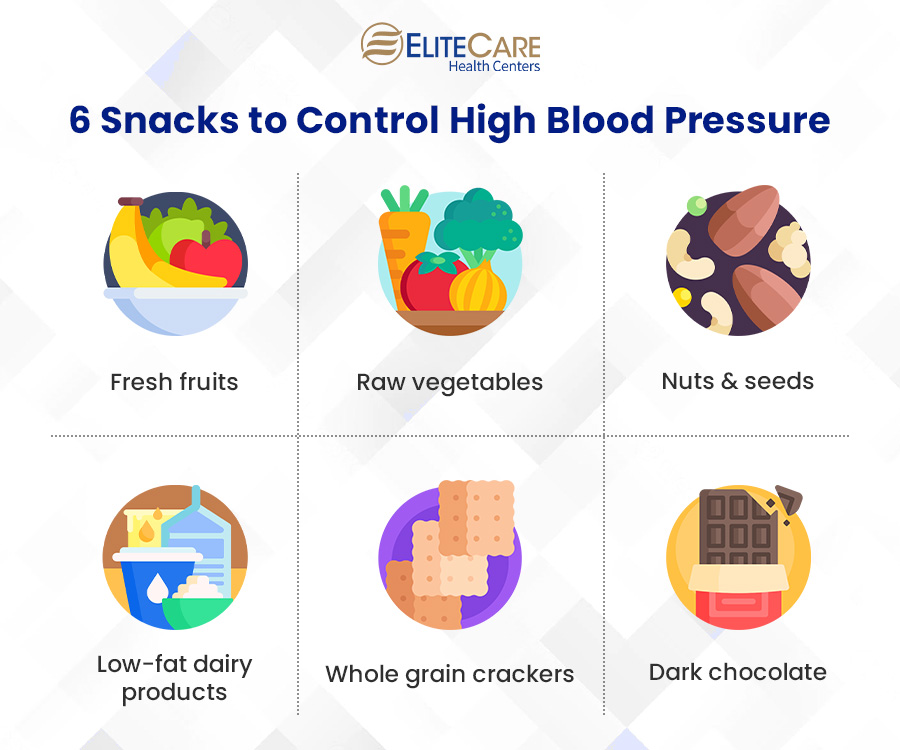
1. Fresh fruit
Apples, bananas, berries, oranges, and grapefruit are low in sodium and rich in potassium and fiber, making them an excellent choice for seniors with high blood pressure.
2. Raw vegetables
Carrot sticks, celery, cucumber slices, and cherry tomatoes are low in sodium and calories and high in fiber. Making them a great snack choice for seniors.
3. Nuts and seeds
Almonds, walnuts, sunflower, and pumpkin seeds are high in healthy fats, fiber, and potassium. Nuts and seeds have healthy fats which can help seniors feel full and satisfied between meals. However, these should be consumed in moderation due to their high-calorie content.
4. Low-fat dairy products
Greek yogurt and cottage cheese are great sources of protein and calcium for seniors. While selecting the products, make sure they are low in sodium or sugar.
5. Whole-grain crackers or rice cakes
These are high in fiber and low in sodium and can be paired with healthy spreads like hummus or avocado for a nutritious and delicious snack.
6. Dark chocolate
It is a tasty snack that contains flavanols, which can help lower blood pressure. Seniors should choose dark chocolate with at least 70% cocoa content and enjoy it in moderation.
Conclusion
